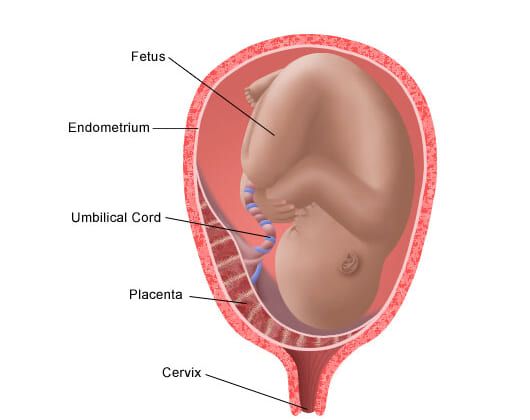
[bc_video video_id=”5637433621001″ account_id=”5374160583001″ player_id=”HJtnW6IQW”]
The science behind pregnancy and childbirth is very complex and still amazes me on a regular basis. For me, perhaps the most remarkable component of pregnancy is a crucial organ called the placenta.
The function of the placenta is to supply a baby with nutrition. This happens when blood from the mother goes from the placenta to the umbilical cord. The placenta filters harmful substances from the blood before passing through, allowing the fetus to absorb oxygen and various nutrients like glucose, allowing the baby to grow.
Besides being a source of nutrition, the placenta acts as a lung for an unborn child. It transfers oxygen and absorbs carbon dioxide, before picking up more oxygen to start the cycle again. The placenta also produces a long list of hormones vital to the health of the baby and mother, as well as helping to ensure a safe delivery by preparing the body for labor.
After an infant is born, the placenta is expelled during afterbirth, resembling a piece of liver and usually about one-sixth the size of the baby.
Although this is a very resilient organ, there are some risk factors women should know about that can affect the health of their placenta. They can include:
– High blood pressure
– Blood clotting disorders
– History of placental problems
– Maternal age
– Abdominal trauma, such as a fall
Your doctor can check on the function of your placenta through tests like ultrasound and measurement of blood flow. For high-risk patients, your doctor may recommend a scan during the final trimester.
The placenta is an incredible organ that plays one of the most important roles in pregnancy. However, it can also be the cause of medical issues if there are placental complications, like pre-eclampsia, or high blood pressure during pregnancy. This is a common problem, and originates in the placenta. It can require medication to lower blood pressure, and can even affect the liver, kidney and the central nervous system.
You doctor can talk to you about any concerns, or assess any risk you may have.
